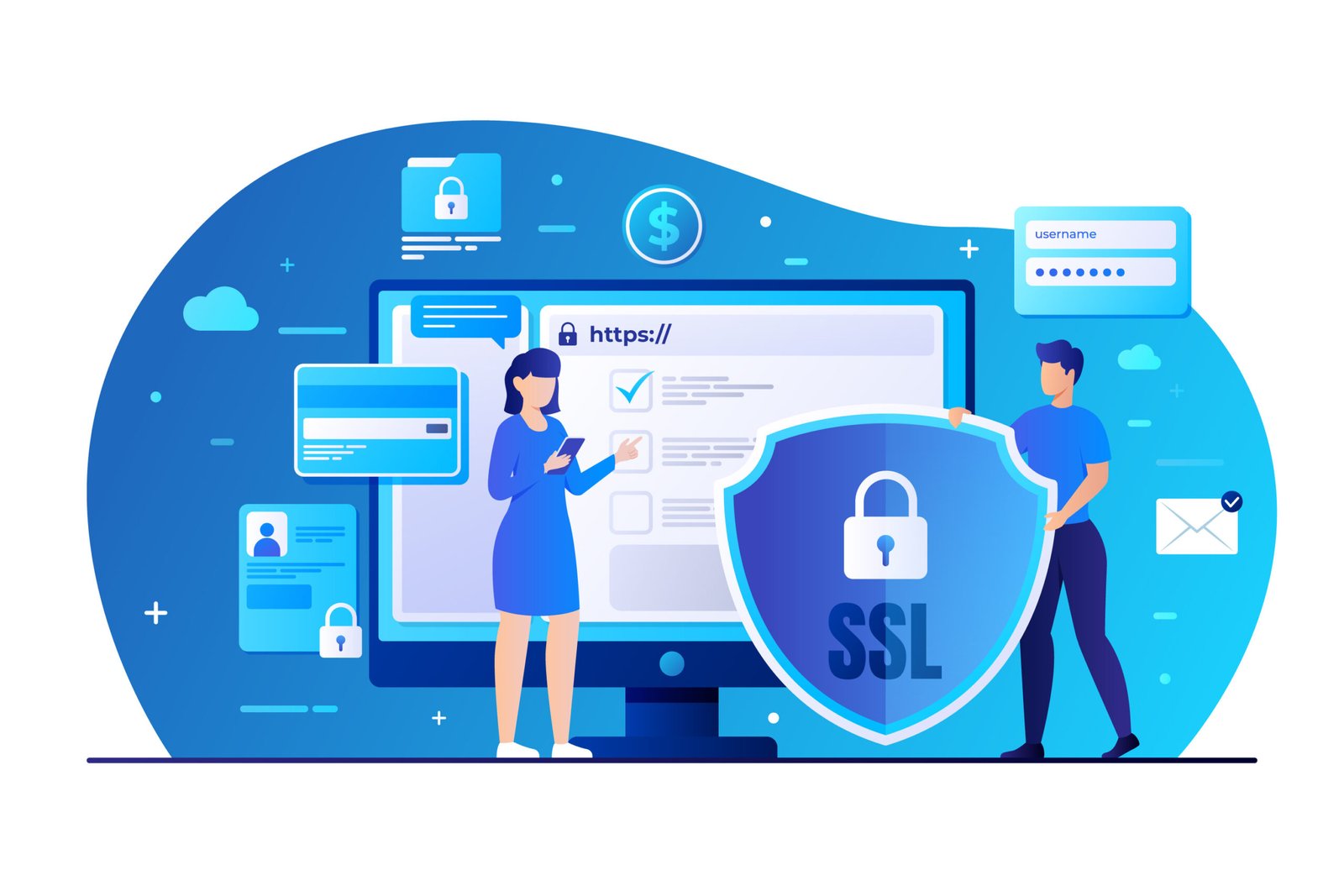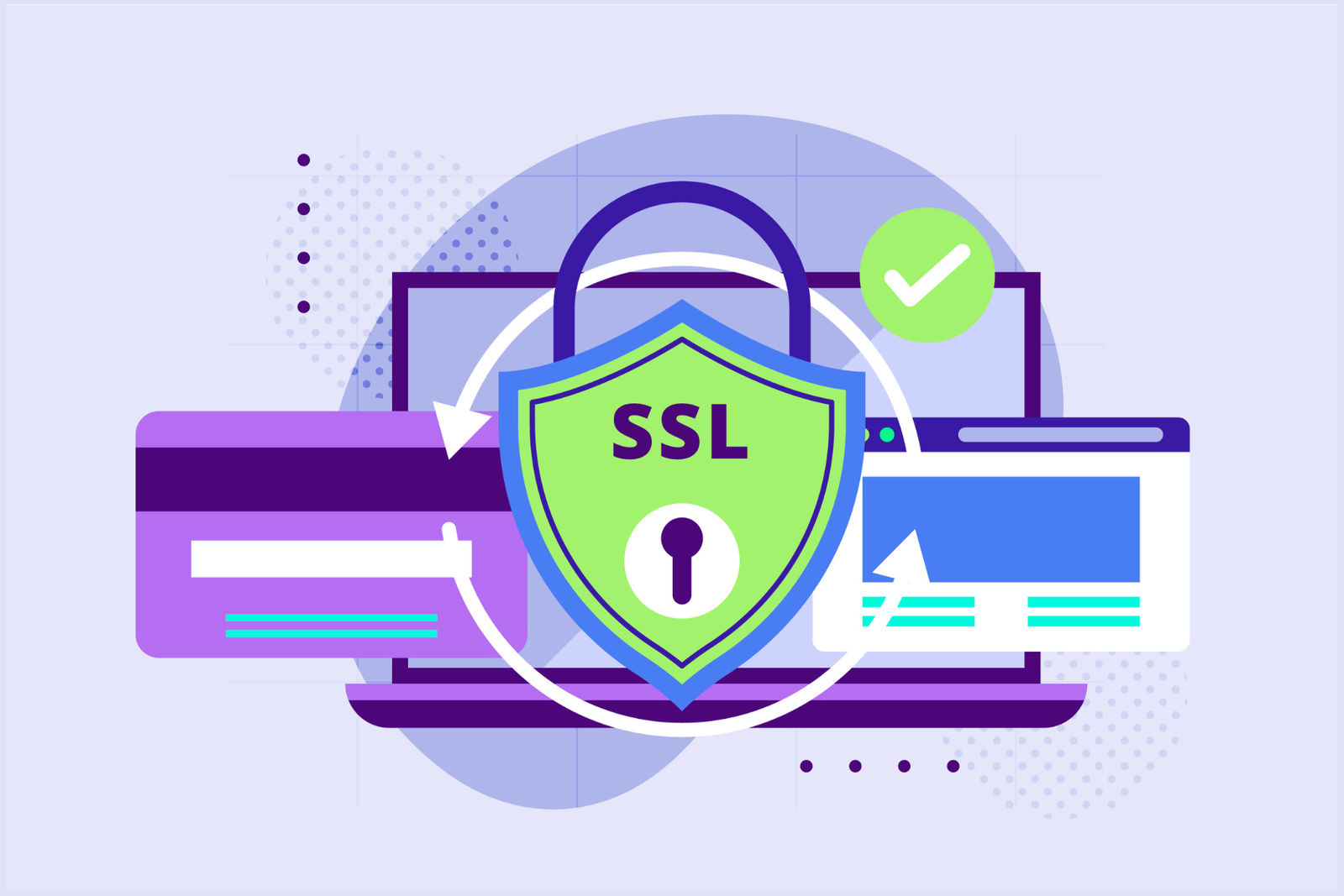What are the advantages of having an SSL certificate?
An SSL certificate has several important advantages: it encrypts data sent between a user and a server, protecting sensitive information from hackers. This improves security and increases user trust, as indicated by visible cues such as the padlock sign and the HTTPS prefix. These factors can improve conversion rates and client loyalty. Furthermore, obtaining an SSL certificate can help your website’s SEO rating, as search engines such as Google prefer HTTPS-enabled sites. Compliance with industry norms and laws is another significant advantage, especially for e-commerce companies.
- An SSL certificate’s principal purpose is to encrypt information so that only the intended parties can read and comprehend it. When you see “https://” instead of “http://” in a URL, it signifies a secure connection where data exchanges are protected.
- Provides Authentication: SSL certificates authenticate the web server’s identity, ensuring that users are interacting with a legitimate website. This prevents domain spoofing and other attacks.
- Necessary for Accepting Payments: If your website handles payments, SSL is essential for secure transactions. It safeguards sensitive data, like credit card details, during online purchases.
- Guards Against Phishing: SSL helps protect users from phishing attempts by verifying the website’s identity. Visitors see the padlock icon and “https://”—a sign of safety and trust.
- Offers Added Brand Power: Implementing SSL demonstrates your commitment to security and professionalism, enhancing your brand reputation.
- Improves Customer Trust: When users see the padlock symbol, they feel more confident browsing your site. SSL builds trust and reassures visitors that their data is secure.
- Better Search Engine Ranking: Search engines like Google prioritize secure websites. Having an SSL certificate positively impacts your SEO ranking, potentially boosting your visibility.
- Enhances Visibility: SSL certificates contribute to a safer browsing experience, encouraging users to stay longer on your site. This increased engagement can improve your site’s visibility.
- Meets Compliance Standards: SSL helps you satisfy PCI/DSS requirements, which are crucial for handling credit card information securely.
- Data Integrity: SSL ensures data integrity by preventing unauthorized tampering or alteration during transmission. Users can trust that the information they receive is accurate and unaltered.
In summary, SSL certificates provide a secure environment, build trust, enhance visibility, and positively impact your website’s ranking. Implementing SSL is a smart investment for any online presence! 😊🔒
What is an SSL certificate, and how does it work?
An SSL (Secure Sockets Layer) certificate is a digital certificate that verifies a website’s identity and allows for encrypted connections. This encryption ensures that any data transferred between a user’s browser and the web server is secure and private, protecting it from being intercepted by malicious parties.
How SSL Certificates Work
- Handshake Process:
- When a user visits a website with an SSL certificate, their browser requests a secure connection.
- The web server responds by sending its SSL certificate to the user’s browser.
- The browser checks the certificate against a list of trusted certificate authorities (CAs) to verify its authenticity.
- Once verified, the browser and server establish a secure connection using a process called an SSL/TLS handshake.
Why do you need an SSL certificate?
An SSL certificate is required for a variety of reasons. For starters, it encrypts the data transmitted between your website and its visitors, safeguarding critical information like passwords and credit card details from any cyber threats. This level of security is critical for ensuring the privacy and integrity of user data. Second, SSL certificates increase trust and trustworthiness. SSL-enabled websites provide visual signs such as the padlock symbol and the HTTPS prefix, assuring consumers that the site is secure. This trust can result in higher conversion rates and client loyalty. Furthermore, search engines such as Google emphasize HTTPS-enabled websites in their ranks, which can boost your site’s visibility and SEO effectiveness. Compliance with industry norms and laws is another crucial consideration, especially for e-commerce companies that must protect client data. Overall, an SSL certificate is a necessary component for every website that wants to provide a safe and trustworthy online experience.
What types of SSL certificates are available?
SSL certificates come in several types, each designed to cater to different security needs and organizational requirements.
- Single Domain SSL Certificates: These certificates secure a single domain (e.g., www.yourwebsite.com) and do not cover subdomains. They are suitable for websites that operate under one domain name.
- Wildcard SSL Certificates: Wildcard certificates protect a single domain and all its subdomains. For example, if your domain is yourwebsite.com, a wildcard certificate can secure subdomains like blog.yourwebsite.com, shop.yourwebsite.com, etc.
- Multi-Domain SSL Certificates (MDC): Also known as Unified Communications Certificates (UCC) or Subject Alternative Name (SAN) certificates, MDCs can secure multiple domains (e.g., yourwebsite.com, yourcompany.com, example.org) under one certificate. They are ideal for organizations managing several domains.
- Extended Validation (EV) SSL Certificates: EV certificates provide the highest level of validation and assurance to users. They involve a rigorous validation process that includes verifying the legal identity, physical location, and operational existence of the entity obtaining the certificate. Websites with EV certificates display a green address bar in browsers, indicating the highest level of trustworthiness.
- Organization Validated (OV) SSL Certificates: OV certificates authenticate the domain ownership as well as the organization behind it. They provide more credibility than DV certificates by displaying verified organizational information in the certificate details.
- Domain Validated (DV) SSL Certificates: DV certificates validate domain ownership only and are the most basic type of SSL certificate. They are issued quickly and are ideal for personal websites or blogs where basic encryption is sufficient.
Each type of SSL certificate provides different levels of security, credibility, and validation procedures. Choosing the correct certificate is determined by your website’s requirements, such as the number of domains or subdomains to secure and the amount of assurance you wish to provide to your users.
What distinguishes DV, OV, and EV certificates from one another?
Let’s explore the differences between domain-validated (DV), organization-validated (OV), and extended-validation (EV) SSL certificates:
- Domain Validated (DV) Certificates:
- Validation Level: DV certificates involve simple verification of the domain owner. The process is fairly short, requiring the buyer to demonstrate control of the domain or URL (usually via email confirmation).
- Trust Level: DV certificates are the lowest standard on the Internet. While convenient for quick issuance, they should be trusted accordingly.
- Organization Validated (OV) Certificates:
- Validation Level: OV certificates verify the domain owner and authenticate details related to the affiliated business, including name, type, status, and physical address.
- Trust Level: OV certificates provide intermediate assurance and display the verified organization’s name in the certificate details.
- Extended Validation (EV) Certificates:
- Validation Level: EV certificates require extensive verification. Nine additional steps are involved, including verifying a business’s public phone number, length of time in business, registration number, and jurisdiction. A domain fraud check, a contact blacklist check, and a telephone call to authenticate the requestor’s employment status are also part of the process.
- Trust Level: EV certificates offer the highest assurance. They display the company name in the browser’s identity field, signaling a secure and trustworthy website.
In summary, DV certificates are quick but have minimal validation, OV certificates provide intermediate trust, and EV certificates offer the highest level of identity verification. Select the option that best satisfies your demands for security! 😊🔒
Here are some recommendations for free SSL providers:
Is there a free option for getting an SSL certificate?
You can get a free SSL certificate to help safeguard your website. Here are some options:
- Let Us Encrypt: Free SSL certificates are offered by Let Us Encrypt, a nonprofit certificate authority. Millions of websites trust and use it extensively.
- Bluehost: Bluehost offers a built-in SSL service, making it convenient for users on their hosting platform.
- SSL for free: If you need an SSL certificate quickly, SSL for free is a good choice.
- Really Simple SSL: This small WordPress plugin makes setting up SSL easier. It automatically detects your site’s settings and configures SSL using Let’s Encrypt, if needed. It is the best choice for WordPress site owners.
- Cloudflare: Cloudflare provides customization options along with free SSL certificates.
- FreeSSL.tech: This option is ideal for WordPress users.
Secure your website with SSL, which is essential for data protection, trust, and search engine ranking. Select the option that most closely fits your requirements! 😊🔒
Of those four, which one is the best SSL certificate provider?
- If you have a WordPress site, Really Simple SSL is excellent due to its simplicity and seamless integration.
- For non-WordPress sites, Let’s Encrypt remains a top choice for its widespread adoption and robust security.
Which one is the best SSL certificate provider in WordPress?
The greatest user-friendly and lightest security plugin for WordPress is called Really Simple SSL. It makes configuring SSL (Secure Sockets Layer) on your WordPress website easier. This is why it is a wise decision:
- Easy Implementation: Upon activation, Really Simple SSL checks your site’s settings and automatically creates an SSL certificate using Let’s Encrypt, if needed. This means you can transition your site from HTTP to HTTPS with just a few clicks.
- Vulnerability Scanning: The plugin scans for possible vulnerabilities on your site and helps keep it secure. It ensures that your SSL performance remains optimized.
- WordPress Hardening: WordPress-specific vulnerabilities are addressed by Really Simple SSL, strengthening your website. It improves security while operating in the background.
- Security Headers: You can configure advanced security headers designed for WordPress, further improving your website’s safety.
- Premium Support: Really Simple SSL provides quality service with a responsive team available to assist you within 24 hours if you need it.
Is it really simple? SSL certificates are secure.
Yes, it is secure. A lightweight and easy-to-use security plugin for WordPress is called Really Simple SSL. It makes installing SSL certificates on your website easier and improves security without endangering or compromising your data. Here’s why:
- SSL Encryption: A simple SSL certificate (SSL/TLS) encrypts data between a user’s browser and the website server, securing sensitive information during transmission.
- Seamless Transition to HTTPS: Really Simple SSL automatically migrates your site to HTTPS and enforces SSL with just one click. It configures your site to use HTTPS, ensuring a smooth transition without any negative impact.
- WordPress Hardening: The plugin also includes important WordPress hardening features like blocking code execution in the uploads folder, disabling XML-RPC, and more. These approaches improve security without affecting performance or the user experience.
- Vulnerability Detection: Really Simple SSL notifies you when plugins, themes, or WordPress core contain vulnerabilities, allowing you to take appropriate action.
- Pro Version: Upgrading to Really Simple SSL Pro provides advanced features like mixed content scanning, security headers, and vulnerability measures.
It makes installing SSL certificates on your website easier and improves security without endangering or compromising your data.
How to Install the Really Simple SSL WordPress Plugin
The Really Simple SSL plugin can be installed in WordPress using the steps listed below:
- Log in to your WordPress dashboard.
- Go to Plugins > Add New.
- “Really Simple SSL” should appear in the search bar.
- Click “Install Now” next to the Really Simple SSL plugin.
- Click “Activate” at the end to begin using the plugin.
Using the plugin’s default settings will be successful for the majority of websites. You can modify the plugin settings by enabling the 301.htaccess redirect by going to “Settings->SSL->Settings.”
Once set, the plugin enhances security by automatically requiring HTTPS on your website. Before making any changes, do not forget to take a backup of your website! 🙡️
If you’d like to see images along with these steps, you can refer to this tutorial.
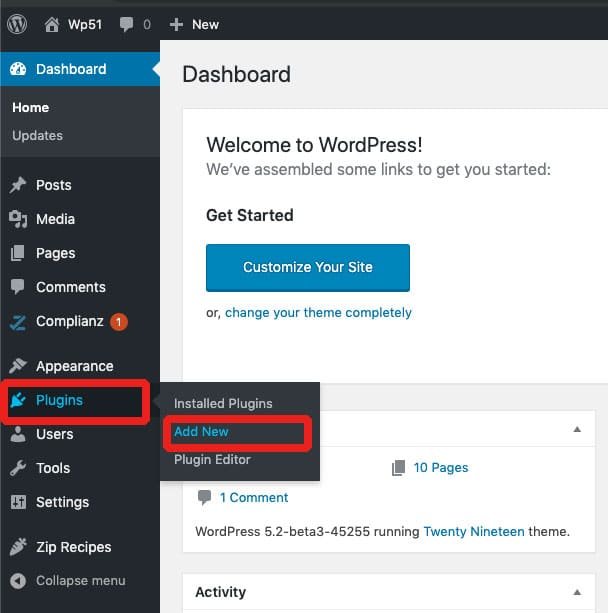
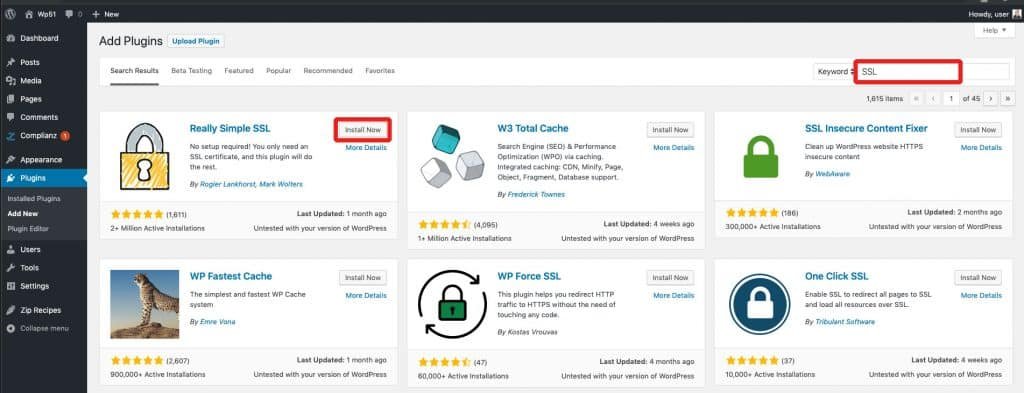
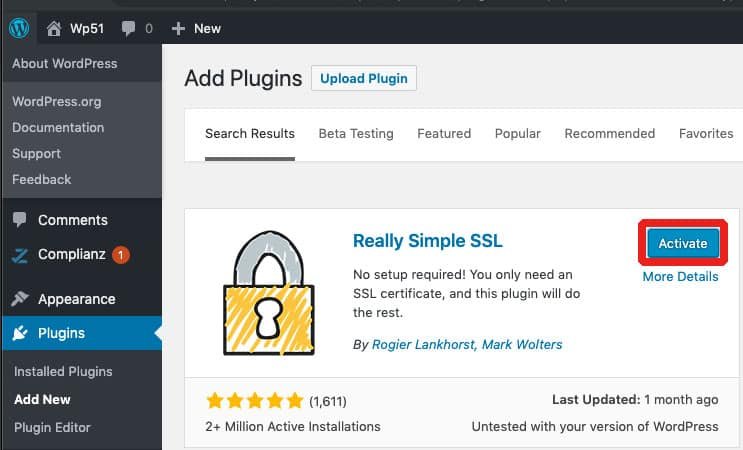
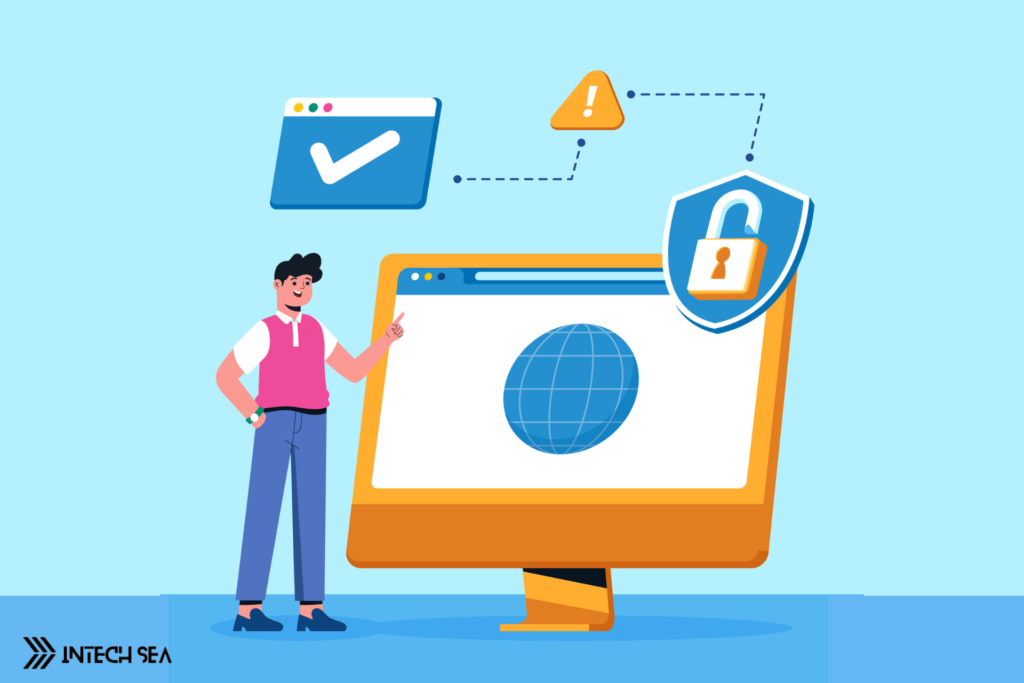
FAQ What are the benefits of implementing SSL/TLS certificates?
Implementing SSL/TLS certificates offers several key benefits for websites and online services. Firstly, it enhances security by encrypting data exchanged between users and servers, protecting sensitive information such as passwords and credit card details from unauthorized access. This encryption helps prevent data breaches and maintains the privacy of user interactions.
Secondly, SSL/TLS certificates build trust and credibility with users. Websites that display HTTPS in their URL and a padlock symbol in the browser reassure visitors that their connection is secure. This visual confirmation encourages users to trust the site with their personal information, leading to increased confidence in making transactions or sharing sensitive data.
Thirdly, SSL/TLS implementation can improve SEO rankings. Safe websites rank higher in search results on search engines like Google. Having HTTPS enabled can positively impact your site’s visibility and search engine ranking, potentially attracting more visitors and improving overall website traffic.
Additionally, SSL/TLS certificates help meet compliance requirements and regulatory standards. Many industries and jurisdictions require websites to secure user data, especially in sectors handling financial transactions or personal information. Compliance with these standards not only avoids potential legal issues but also demonstrates a commitment to protecting user privacy.
Furthermore, SSL/TLS certificates mitigate risks associated with phishing attacks and man-in-the-middle attacks. These certificates authenticate the identity of the website, ensuring users are connecting to the intended server and not a malicious impostor. This verification process helps prevent the unauthorized interception of sensitive data during transmission.
In conclusion, implementing SSL/TLS certificates is essential for any website or online service aiming to provide a secure, trustworthy, and compliant environment for users.
Conclusion
In conclusion, implementing an SSL certificate brings significant advantages to any website or online service. It enhances security by encrypting data exchanged between users and servers, protecting sensitive information from unauthorized access and potential breaches. This heightened security not only safeguards user privacy but also builds trust and credibility through visual indicators like the padlock symbol and HTTPS prefix. As users feel more secure, they are more likely to engage with your site, leading to increased conversion rates and customer loyalty.
Moreover, having an SSL certificate can positively impact your website’s SEO ranking, as search engines prioritize secure sites in their results. This improved visibility can attract more visitors and enhance overall website traffic. Additionally, SSL certificates help businesses meet compliance requirements and regulatory standards, which are particularly crucial for sectors handling financial transactions or personal data.
By mitigating the risks associated with phishing attacks and ensuring data integrity during transmission, SSL certificates play a vital role in maintaining a secure online environment. Ultimately, investing in SSL not only protects your users but also enhances your brand’s reputation and online presence in an increasingly digital landscape.
I have written written article related to SSL

